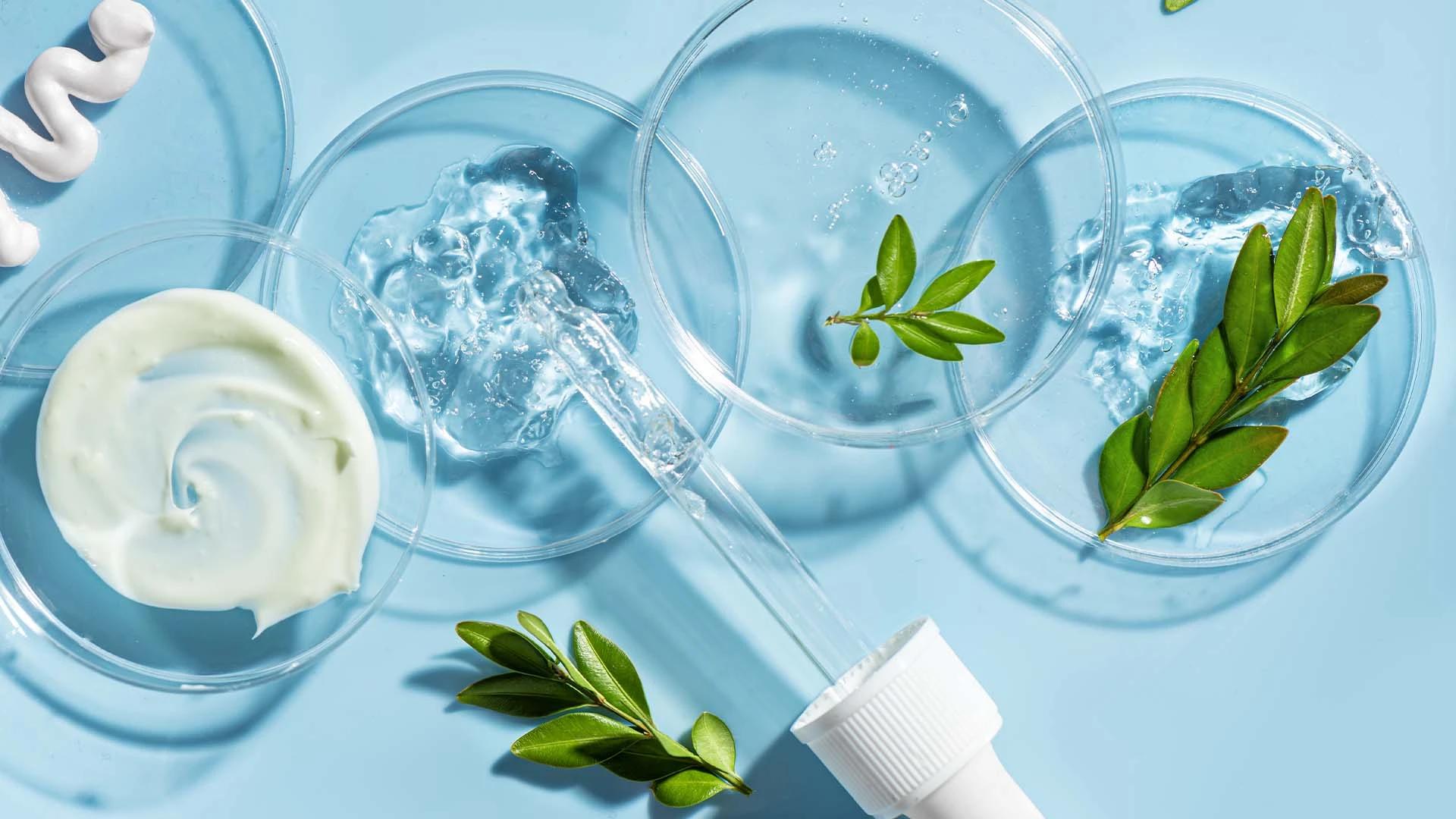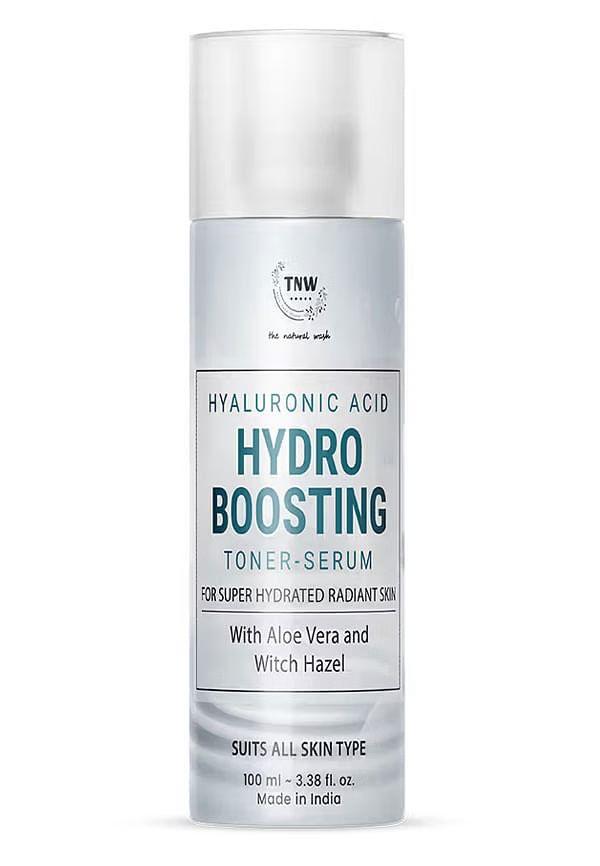Hyaluronic Acid 101: A Step-by-Step Skin Care Guide


 200ml
200mlKorean Rice Water & Collagen Advanced Damage Repair Conditioner
If there's one ingredient that's absolutely everywhere in skincare right now, it's hyaluronic acid. You've probably spotted it on serums, moisturisers, and face masks, but what exactly does it do? Real talk—this isn't just another trend that'll disappear next season. Hyaluronic acid is genuinely one of the most effective hydrating skincare ingredients out there, and once you understand how to use it properly, it might just become your skin's new best mate.
Before diving into your routine, it's worth understanding exactly what this ingredient is and why it works so brilliantly for hydration. Let's break down the science in simple terms.
Hyaluronic acid is a naturally occurring substance in your body, with about half of it living in your skin. Think of it as your skin's built-in hydration system. It's got a fancy scientific name, but think of it as a clever sugar molecule that's obsessed with water. As we age, our natural hyaluronic acid levels drop, which is partly why skin starts to feel drier and look less bouncy over time.
Here's where it gets properly impressive: hyaluronic acid can hold an impressive amount of water—up to 1000 times its weight in moisture. That's like having a tiny reservoir in your skin cells. When applied to your skin, it draws moisture from the environment and deeper layers of your skin, creating a hydrating effect that lasts for hours. This is what makes it so effective as one of the key natural moisturising factors your skin craves.
Now that you know what it is, let's talk about why everyone's obsessing over it. The benefits go way beyond just making your skin feel less tight after cleansing.
The main event is obviously hydration. Hyaluronic acid doesn't just dump water onto your skin and call it a day—it actually helps your skin hold onto moisture for longer. This means fewer dry patches, less flakiness, and that healthy glow that comes from properly hydrated skin. It's particularly brilliant for anyone whose skin feels tight or uncomfortable throughout the day.
Here's one of those dewy skin secrets: well-hydrated skin naturally looks plumper and smoother. When your skin cells are full of moisture, fine lines become less noticeable, and your complexion appears more youthful. It's not going to work miracles overnight, but consistent use might help with those early signs of ageing that start creeping in.
Your skin barrier is like a protective wall that keeps the good stuff in and irritants out. When it's compromised, you might notice more sensitivity, redness, or breakouts. Hyaluronic acid helps strengthen this barrier by maintaining the right amount of moisture, which supports your skin's natural repair processes and overall health.
This is where the magic really happens. The skin plumping treatments you see at spas often use hyaluronic acid because it gives that immediate 'filled-out' look. While topical products won't give you the same dramatic results as professional treatments, they can still provide a subtle plumping effect that makes your skin look more bouncy and youthful.
 Combo
ComboFresh Face & Floral Mist Kit: Eau De Parfum Bloom + Pore Minimizing Sunscreen SPF 70 PA++++ Face Gel
Right, let's get to the practical bit. Having a brilliant ingredient is one thing, but knowing how to use it properly is what separates good skin days from great ones.
Hyaluronic acid comes in different forms—serums, moisturisers, face masks, and even cleansers. Moisturising serums are usually your best bet because they have a higher concentration and can penetrate deeper into your skin. Look for products that list hyaluronic acid (or sodium hyaluronate, which is a more stable form) within the first few ingredients on the label. With so many options available, platforms like Smytten let you try different formulations through curated trial packs before committing to full sizes.
Here's a game-changer: apply hyaluronic acid to slightly damp skin. This gives it something to grab onto and helps lock in that moisture. Use gentle upward strokes and don't forget your neck—it needs love too. A few drops or pumps are usually enough; you don't need to drench your face in product.
Timing matters when you're layering products. Apply hyaluronic acid after cleansing and toning but before heavier creams or oils. The general rule is thinnest to thickest consistency. It plays well with most other ingredients, making it perfect for mixing with your existing routine without causing any drama.
Good news—you can use hyaluronic acid morning and night without any issues. It's gentle enough for daily use and actually works better with consistent application. Always follow up with a moisturiser to seal everything in, and don't forget SPF during the day because hydrated skin can be more sensitive to sun damage.
Want to get the most out of your hyaluronic acid routine? It's not just about what you put on your skin—there are other factors that can boost its effectiveness.
Hyaluronic acid loves company, especially from other hydrating ingredients like glycerin, ceramides, and niacinamide. These work together to create a moisture sandwich that keeps your skin happy all day long. Avoid using it with strong acids or retinoids at the same time—give your skin a break between these products.
Let's be real—no skincare product can work miracles if you're not taking care of yourself from the inside. Drinking enough water and eating foods rich in healthy fats and antioxidants supports your skin's natural ability to stay hydrated and repair itself. Think of topical hyaluronic acid as the cherry on top of good overall health habits.
Your environment plays a huge role in how well keeping your skin hydrated works. Air conditioning, heating, and low humidity can all work against your efforts to keep skin moisturised. Consider using a humidifier in your bedroom, and be extra generous with your hyaluronic acid during harsh weather conditions.
 145 ml
145 mlHydro Boost Cleanser Water Gel With Hyaluronic Acid
There's a lot of information floating around about hyaluronic acid, and not all of it is accurate. Let's clear up some of the most common myths so you can make informed decisions about your skincare routine.
Using half a bottle of serum won't give you twice the results—it'll just waste product and potentially irritate your skin. A few drops of a good hyaluronic acid serum is enough to cover your entire face. Your skin can only absorb so much, so stick to the recommended amount on the packaging.
Some people worry that hyaluronic acid might darken their skin, but this isn't true. Pure hyaluronic acid is clear and doesn't contain any pigments or ingredients that would cause darkening. If you notice any colour changes, it might be due to other ingredients in the product or an unrelated skin condition.
While hyaluronic acid is brilliant, it's not the only hydrating ingredient worth your attention. Glycerin, ceramides, and squalane all have their own benefits. The best approach is often using products that combine multiple hydrating ingredients rather than relying on just one superstar.
If you're looking to take things up a notch, there are more intensive options available. These treatments go beyond what you can achieve with at-home products, but they also come with higher costs and potential risks that are worth considering carefully.
Many professional facials incorporate hyaluronic acid masks or serums that are more concentrated than what you'd use at home. These treatments often combine hyaluronic acid with other active ingredients and techniques like microcurrent or LED light therapy to boost absorption and effectiveness.
Injectable hyaluronic acid fillers are popular non-surgical options. They provide immediate results without the need for surgery. Injectable treatments should only be performed by qualified medical professionals and results vary by individual.
If you prefer natural options, ingredients like aloe vera, honey, and certain plant-based glycerins can provide similar hydrating benefits. While they might not be as potent as synthetic hyaluronic acid, they can still be effective parts of a comprehensive skincare routine, especially for sensitive skin types.
Sometimes even the best ingredients don't deliver the results you're expecting. Before you give up on hyaluronic acid entirely, there are a few things to check that might explain why it's not working as well as it should for your particular skin.
 100 ml
100 mlHyaluronic Acid Hydro Boosting Toner-Serum For Hydrating & Glowing Skin
While hyaluronic acid allergies are rare, they can happen. Signs include persistent redness, itching, or breakouts that started after introducing the product. If you suspect a reaction, stop using the product and consider patch testing new skincare items on a small area before applying them to your entire face.
Oily skin might need a lighter hyaluronic acid formula, while dry skin can handle richer, more concentrated versions. If you have very dry skin, you might need to layer multiple hydrating products or use hyaluronic acid twice daily. Sensitive skin types should start slowly and gradually increase usage.
If you're not seeing improvements after 6-8 weeks of consistent use, or if you're experiencing persistent skin issues, it's worth chatting with a dermatologist. They can help identify underlying skin conditions that might be affecting how your skin responds to different products and suggest personalised treatment options.
Yes, hyaluronic acid is generally suitable for all skin types, including sensitive skin. It's a gentle, naturally occurring substance that rarely causes irritation. However, people with very sensitive skin should start with lower concentrations and gradually increase usage.
Side effects are uncommon, but some people might experience mild irritation, especially when first starting to use the product. This usually settles down as your skin adjusts. If irritation persists, try using it less frequently or switch to a gentler formulation.
You might notice immediate hydration benefits after the first use, but significant improvements in skin texture and appearance typically become visible after 2-4 weeks of consistent use. Long-term benefits continue to develop over several months.
Topical hyaluronic acid is generally considered safe during pregnancy and breastfeeding since it's naturally found in the body and doesn't penetrate deeply into the bloodstream. However, it's always best to consult with your healthcare provider about any skincare changes during pregnancy.
While it's difficult to 'overdose' on hyaluronic acid, using excessive amounts won't provide additional benefits and might feel sticky or uncomfortable on your skin. Stick to the recommended usage instructions for best results.
Hyaluronic acid truly deserves its spot in the skincare hall of fame. From providing deep hydration to supporting your skin's natural repair processes, it's one of those ingredients that actually lives up to the hype. The key is using it consistently and correctly—applying it to damp skin, following up with moisturiser, and being patient while your skin adjusts to the new routine. Remember, finding the right hyaluronic acid product for your skin might take a bit of trial and error. What works brilliantly for your mate might not be your perfect match, and that's completely normal. Smytten offers curated trial packs from over 1,500 trusted brands, letting you explore and experience different hyaluronic acid formulations before committing to full-size purchases. Each mini is linked with Trial Points, and users can get up to 8 minis for just ₹249, making it easy to discover your ideal skincare routine without the guesswork.